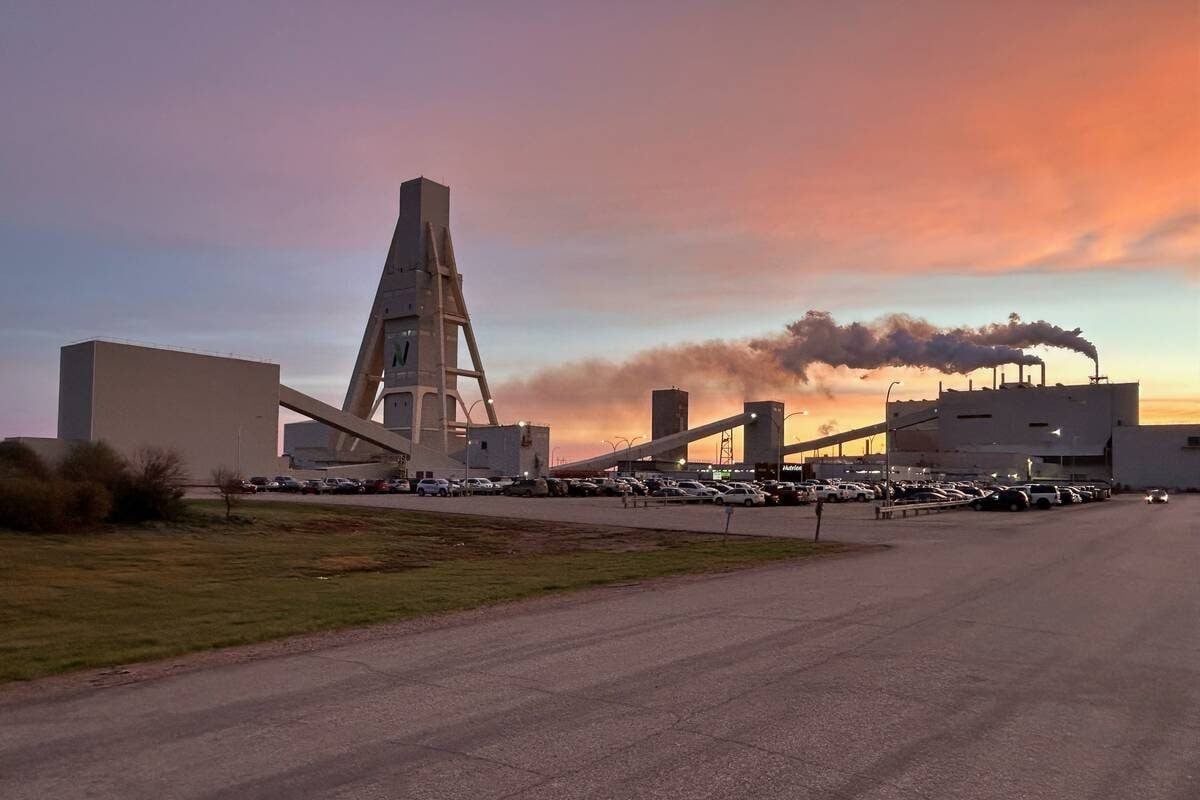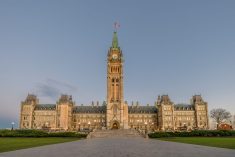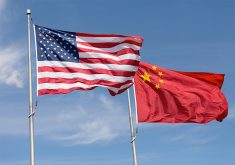OTTAWA — The theme for the 2015 Forum on Canada’s Agri-Food Future was framed as a question: should Canada aim to become the most trusted food system in the world?
Michael McCain, chief executive officer of Maple Leaf Foods, blasted a 10-gauge shotgun hole in that concept when he addressed the forum yesterday afternoon.
McCain said it would be a mistake to pursue a brand of “most trusted” because it would provide little benefit to Canada’s agri-food industry.
“The one word I would describe this (plan) … is dangerous,” he said. “(It’s) something we should not attempt.”
Read Also

Nutrien tops profit estimates, launches review of phosphate business
Nutrien beat analysts’ expectations for third-quarter profit on Wednesday, and said it would initiate a review of strategic alternatives for its phosphate business.
McCain’s comments caught many off guard at the downtown Ottawa event, hosted by the Canadian Agri-Food Policy Institute and Canada 2020, two think-tanks in the nation’s capital.
McCain said Canada already has a strong reputation for safe food. Any effort to brand the entire agri-food sector as most trusted would be a blunder because the global food market is complicated and segmented. Some consumers might pay a premium for Canadian products that come out of a rigorous, sustainable and credible food system, but many may not.
“We can only afford in our industry to add value where individual customers or markets … will pay for that value,” McCain said.
“Canada isn’t large enough, or influential enough, or competitive enough, as an industry … to try and establish and paint one brush across the whole industry, saying we’re going to compete on a different plane.”
David Piggott of Morrison Lamothe, a frozen food manufacturer near Toronto, supported McCain’s assessment.
He said Morrison Lamothe already makes safe food. Additional time and resources to enhance food safety wouldn’t be helpful.
“It’s not enough to sell food safety. We have to sell on competitive basis, and trust means different things in different markets.”
McCain emphasized that individual companies in the agri-food sector are free to pursue a particular segment of consumers, such as people who value natural, or organic or enhanced animal welfare.
But an entire country shouldn’t aim for a particular brand like “most trusted.”
“That cost, in our view, will never be universally valued because of a marketplace that isn’t homogenous,” he said. “We believe that innovation and adding value is the domain of individual participants.”
Robert.arnason@producer.com















